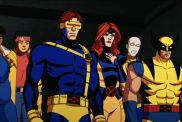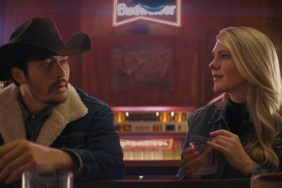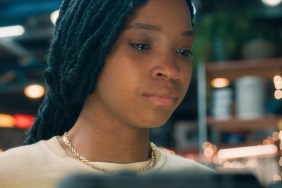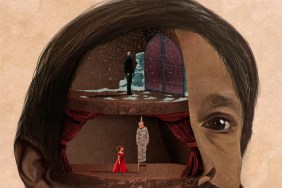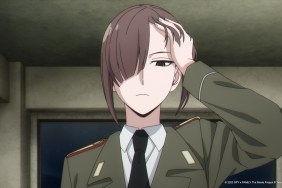I love Lost in Translation. I love Bill Murray. I love Sean Penn. I love Mystic River. However, I hate that Sean Penn beat Bill Murray for the Best Actor Oscar.
Look, 2003 was a magnificent year for films. Audiences enjoyed many incredible movies, ranging from classic blockbusters like The Lord of the Rings: The Return of the King to the excellent Finding Nemo and the gripping Mystic River.
Yet, none are as profoundly moving as Sofia Coppola’s Lost in Translation. Starring Bill Murray and Scarlett Johansson, the dramedy depicts two lost souls who find each other during an extended stay in Tokyo. Bob (Murray) is an aged actor stuck shooting cheesy whiskey commercials, while Charlotte (Johansson) is a conflicted newlywed confined to a hotel room, waiting for her photographer husband to give her some attention. Eventually, the pair meet in a bar, a natural chemistry develops, and they spend a brief journey together, hitting up karaoke bars, visiting Buddhist temples, and enjoying nighttime taxi rides through their foreign environment.
Coppola expertly captures the loneliness and isolation of these two strangers and explores their deep emotional intimacy and a profound sense of understanding and companionship. Terrific dialogue — “The more you know who you are and what you want, the less you let things upset you.” — striking cinematography, a powerful score, and assured direction make Lost in Translation a scrumptious, heartbreaking, absorbing cinematic feast.
None of it works without Murray and Johansson’s nuanced performances, which were somehow overlooked by the Academy.
Johansson wasn’t even nominated; her role as the quietly conflicted Charlotte was overlooked in favor of Charlize Theron (Monster), Keisha Castle-Hughes (Whale Rider), Diane Keaton (Something’s Gotta Give), Samantha Morton (In America), and Naomi Watts (21 Grams).
What the hell?
At least Murray received a nomination in a category that essentially came down to him and Sean Penn. (For what it’s worth, the others nominated were Johnny Depp for Pirates of the Caribbean: The Curse of the Black Pearl, Ben Kingsley for House of Sand and Fog, and Jude Law for Cold Mountain.) As customary, the Academy opted for the showier, melodramatic performance and awarded Penn his first statue.
Yes, Mr. Penn is very good in Mystic River. Mesmerizing even. He commands the screen and stands out in a picture jam-packed full of award-worthy performances.
Murray was better. Where Penn laced his Jimmy Markum character with volcanic emotion, Murray goes for subtlety, opting for intricate, quieter moments with occasional moments of humor. There’s a scene early in the film where Bob sits at a bar enjoying a drink. Two fans interrupt his solitude. Murray displays a cold look that speaks volumes about his character. Here is a man practically fed up with fame, mostly because it hasn’t led to anything beyond monetary comfort. He’s tired of the fans, tired of his wife. When a prostitute shows up in his room, he barely reacts, probably because he’s had his share of women in motels and strip clubs. The thrill is gone. Now, he’s a shell of his former celebrity self.
Into his world steps Charlotte, a beautiful soul who reinvigorates his love for life. As the story progresses, you see a spark of youthful exuberance. Suddenly, he’s alive, staying out late, partying with strangers in clubs, and embracing the Japanese culture.
Coppola gives Murray plenty of opportunities to display his natural comedic charm—there’s a fair amount of improvising going on here—but she also pulls from the actor a warmth only fleetingly seen throughout his career in films such as Groundhog Day and Broken Flowers. It’s the type of head-turning, “I can’t believe he did that” performance that only comes around once in a blue moon.
Penn is terrific in Mystic River. Murray is transcendent in Lost in Translation.
Honestly, can you think of anyone else who could have played Bob Harris?
Unfortunately, like Robin Williams, audiences never fully embraced or appreciated Murray’s dramatic side. His highest-grossing films are (incredibly) The Jungle Book, Ghostbusters, Charlie’s Angels, Space Jam, and Garfield: The Movie.
Lost in Translation earned a solid $117M, but subsequent dramatic attempts by the actor —notably Broken Flowers and St. Vincent — were only modest successes. Luckily, he’s enjoyed supporting roles in nearly all of Wes Anderson’s films—perhaps the only director aside from Coppola capable of honing Murray’s talents.
Still, he’s at his absolute best here, and it’s a damn shame more roles like this didn’t pop up more often. I mean, watch this scene and try not to feel something:
Another not-so-insignificant detail? Johansson was 17 when Lost in Translation was in production. Murray was in his early 50s. Yet, their relationship is never creepy or uncomfortable. They display wonderful chemistry, and there exists a not-so-subtle desire lurking beneath the surface, but Murray’s warmth and kindhearted nature prevent their relationship from veering into unnecessary territory. Even as they lie together in bed or share a friendly kiss on an elevator. No other living actor could have pulled off such a tricky feat.
Of course, the big moment arrives at the end when Bob sees Charlotte for the last time—a bittersweet, emotional scene that feels so … real. They share a final kiss (improvised on the spot by Murray) and say goodbye. You can feel the sadness, the raw emotion of the moment. And that’s the beauty of Lost in Translation: here is a motion picture that truly makes you feel something deep inside.
That’s got to be worth an Oscar, right?
As a side, curse the Academy for depriving us of what would surely have been one of the great Oscar speeches.




